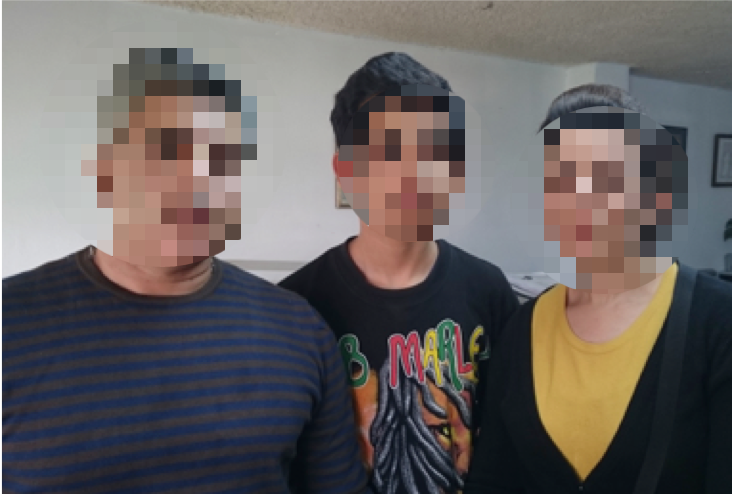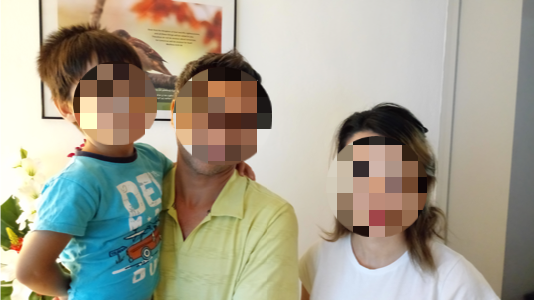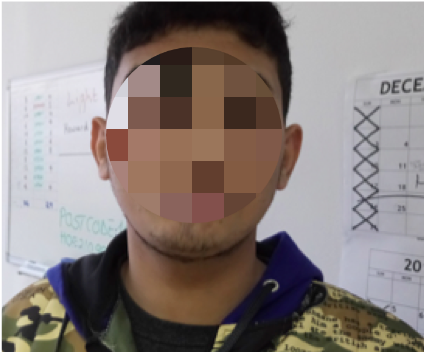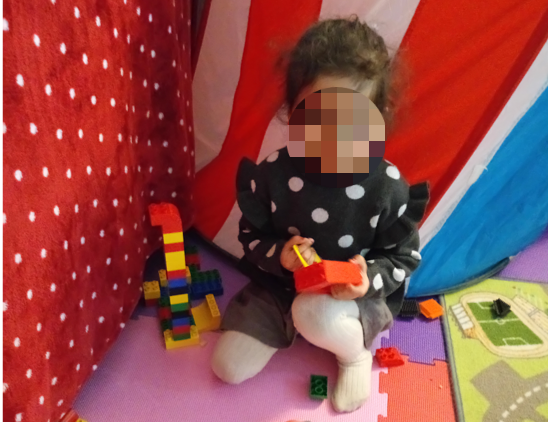Bishop of Truro’s Independent Review for the Foreign Secretary of FCO Support for Persecuted Christians
The International Christian Consulate was encouraged by the Foreign Secretary, Jeremy Hunt's announcement earlier this year, that there would be an independent review into worldwide Christian persecution. This is a topic regularly overlooked and rarely spoken of by government officials, yet Christians remain the most persecuted religious group in the world.
In April, the ICC was invited to present oral evidence to the panel in Westminster. Our evidence is published below. Our message was an uncomfortable one - serious persecutions of Christians is happening, not in far away corners of the world, but in Europe, right on our doorstep.
As uncomfortable and often 'unreportable' as it is, this is a message that needs to be heard.
The Independent Review's Interim report was published in early May 2019 with the full report due to be published later in the summer.
International Christian Consulate,
FCO Review Oral evidence, 2nd April 2019
(in addition to written evidence also submitted)
The International Christian Consulate (ICC) is a British charity in Athens that works with Christian refugees and asylum seekers arriving from the Middle East. I’d like to begin our evidence by sharing a quote by a Syrian refugee in a recent BBC documentary.
Ali is Kurdish and originally from north-east Syria - he said:
“When we first got to Moria it was a very violent surprise. We found out there was already existing sectarianism and racism. Whether it was between Sunni and Shia, Muslims and Kurds, Arabs and Afghans. The political problems that were happening in Syria were also being played out in Moria. The same problems of YPG, Qasads, Al-Nusra, Free Syrian Army, and ISIS, they were all there.”
When asked if dangerous people were living in Moria, he responded:
“it’s not just my opinion. It’s a fact. No matter what someone might say, if you don’t live through it here you will not understand. Its’s like the war in Syria but it’s uglier. For three years I trusted the sea would take me somewhere better. But the sea has betrayed me.”
Ali’s comments, although not a Christian himself, reflect those of the hundreds of Christian refugees and asylum seekers the ICC has assisted over the past three years.
It’s important to understand many of these millions of migrants have brought with them, in their hearts and minds, their historic tribal, ethnic and religions tensions. Thus Europe’s refugee camps simply become microcosms of the Middle East.
Christians who fled terrible religious persecution in their homelands, find persecution again within Europe’s borders in designated camps and asylum seeker accommodation. Such accommodation, run by European states and UNHCR, is supposed to protect the rights of such people under international law. But they don’t. In truth, no-one is really helping the Christians who represent just 1-1.5% of the overall refugee population.
People often struggle to understand how Christians can be a persecuted religious minority in Europe, with its Judeo-Christian roots. However, when one understands the dynamics of the asylum seeker population in closed camp environments, which become microcosms of their homelands, it’s easier to understand.
Case Studies
Persecuted Christians in Europe have a voice which is rarely, if ever, heard. We have the opportunity to speak for them, so let me introduce you to some ICC beneficiaries, who are all victims of Christian persecution in Europe.
First is F*, K and their son P. P was 13 when he was surrounded by a group of asylum seekers, from their camp, on the Athens metro and shown videos of ISIS beheading Christians. They told him they would do the same to him and his family because they were Christian. When we first met P he was so traumatised he wouldn’t speak. K was pregnant.
The family were relocated from a camp to UNHCR accommodation where they were attacked with knives in the communal kitchen - because of being Christian. I was personally involved in rescuing them in the middle of the night and placing them in an ICC safe house. F didn’t want to leave the family’s few possessions so stayed to guard them whilst we took his wife and son first. He stood sobbing on the pavement saying “if he died that night he’d have peace because his wife and son would now be safe.” This was in 2016.
Next is D, M and K, who came to ICC 8 months ago. They fled Iran due to religious persecution by the government because of their faith. They were placed in Larissa camp north of Athens where they and two other Christian families were attacked one Sunday evening after returning from church. A group of about 50 surrounded their connex - the container style accommodation unit used in camps, who poured petrol into it threatening to burn them alive, held knives to the throats of the women and children.
They also threatened to kill them unless they left the camp immediately. D had a heart attack in the midst of all this and the crowd even tried to stop the ambulance entering the site. The Greek security guards were too afraid to intervene. The families fled in the early hours back to their local church who referred them to ICC.
When we think of Christian persecution we tend to think of the Middle East or other parts of the world - but it’s actually happening much closer to home.
Just this morning two reports were sent to me on the train coming to this review. Both incidents occurred very recently in Germany. One involving an Afghan man stabbed and seriously injured because he was Christian, the other involving an Iranian couple, S and S (above), beneficiaries of ICC in 2017/2018, now afraid to identify as Christians in their community for fear of attacks. They said the police do nothing. Afghan converts are amongst some of the most vulnerable, as some of the worst perpetrators of this kind of persecution of migrants are Afghans with extremist beliefs. We have come across many such situations, where converts are followed and watched, and then finally when the opportunity arises, are attacked - sometimes leaving them with life-threatening injuries.
S said to me today: “even going to church we have to be very careful”. In the case of the Afghan man the police told him he was lying and the stabbing was nothing to do with being Christian, trying to deflect the case away from being recorded as a hate crime with a religious context.
Next Is A. A came to ICC in 2017. He fled Iraq after converting to Christianity. He was beaten and tortured by his own family for his apostasy, his body is covered in scars. His heart and mind are also scarred. He fled via Turkey to the Greek islands where again, he became a victim of persecution and beatings in the camp for the same reasons. He resorted to sleeping on the beach to try to escape the persecution he faced in the camp.
Only because a Christian missionary reached out to him and sheltered him did A keep his sanity.
No authority or government has helped him.
Finally, is little N, who is 3 years old. Her parents were also attacked in their camp. This little Christian girl had a knife held to her throat, was threatened with kidnap, roughed up and terrorised. Her mother still has PTSD and receives regular psychological support.
We could tell you of many similar stories. What is notable is what they have in common. None of them have ever received any official recognition or help regarding their persecution. UNHCR in Greece only has observer status.
Recognise Persecution and Take Action
If the British Government is serious about doing something it must recognise the dangers faced by such people, especially those who convert and change religion. Under sharia law, the penalty for apostasy is death.
Recently whilst in Moria camp, on the island of Lesvos, we learnt that 100% of the Christians who participated in the report you have copies of, said it was unsafe to identify as Christian. 95% said it was unsafe even to read their bible. One young Afghan man confided how he’d been gang raped just days earlier for his apostasy.
Another young Iranian was so traumatised by the violence and rape he endured due to his faith, on the Greek mainland, that he turned to drugs and is now in a very desperate condition. Islamic extremists cannot easily exercise the Sharia death penalty on Greek soil, but they can and do kill the spirit and soul, through humiliation and physical and sexual violence.
Sadly, the recent decision by the UK Home Office to reject an Iranian believer demonstrates well, the lack of understanding as to the seriousness of apostasy laws. Christians have been fleeing their homelands, seeking sanctuary and freedom to practice their faith. They ran to the West for safety - but the West has failed them. Currently, because Europe’s governments fail or refuse to recognise Christian persecution, the burden of responsibility falls upon smaller charities and NGOs like ICC.
There is also a misplaced assumption that large organisations such as UNHCR, and multi-national NGOs, some with Christian sounding names, actually help Christians. They don’t. Large NGOs have to support large infrastructures and often employ local staff who are not always sympathetic to the Christian minority, and who, sometimes even, are hostile.
These large organisations also have to embrace politically driven agendas and satisfy Government donors, most of whom are not supportive of persecuted Christians either. Thus, such large organisations are often detached and unaware of what is happening at ground level.
The FCO however, could make a positive contribution by establishing relationships with smaller NGOs who specialise in rescuing and protecting Christians, or who at least have an understanding of their situation and know the families and individuals concerned. Rather than investing millions in aid to large politically driven organisations who have little or no interest in Christian persecution, the FCO could build relationships with a team of chosen partners who could provide accurate intelligence and source genuine Christians at risk, for relocation or support.
This could be a win-win situation, saving the Government considerable resources whilst addressing the growing discontent among the UK Christian community, who perceive their Government is doing nothing. The international law required to expedite such policy change already exists. All it requires is the moral courage to act.
*Names have been removed for privacy and security reasons.





